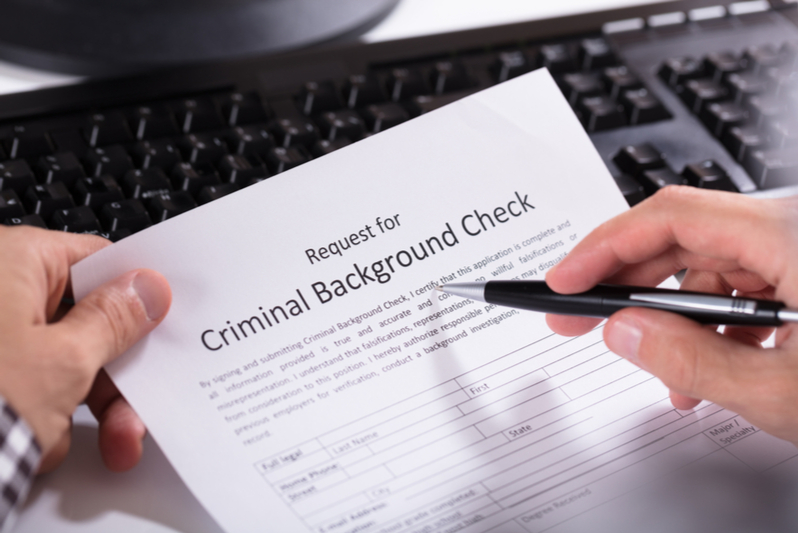Those who have struggled with drug and alcohol addiction may have a hard time returning to the workforce. Updating resumes, talking to recruiters, and interviewing with potential employers can be a daunting process for anyone, but for a recovering addict, the process can be downright discouraging.
It’s best to start out knowing what you want out of the job you choose. Ask yourself these questions:
After you begin to understand what you want from your new job, it’s time to do what it takes to get the job and feel good about having it. Here’s what’s worked for recovering addicts in the past.

Before attempting anything else, it is essential that you update your resume. You do not want to go into an interview with a resume that does not reflect your best self. Be sure to list your skills, your work ethic, and what you have to offer to the company. Add in any references you may have, as well as any certifications or additional skills you have outside of your general education. A strong resume will attract employers and recruiters and is the first chance you have to make a positive impression. For this reason, it is important that you edit and proofread your resume to present your best self to your potential future employer.
LinkedIn is your best friend during this process. Apply to as many jobs as you qualify for, reach out to recruiters and resume builders, and see where it takes you. Building relationships with these individuals is vital to your job search. They can guide you in the right direction and are a useful tool for your job hunt.
Referrals from friends, previous employers, and coworkers can all work to your advantage. These people understand what you’ve been through and know that you are trying to get your life back on track. They may be more willing than others to support you and help you find a job after recovery. Even your recovery facility may have resources you can use, such as recovery support groups or employment counseling.
There are classes you can take on LinkedIn if you want to learn a new set of skills. If you want to improve your resume but do not know where to start, you can hire a resume advisor on LinkedIn to guide you through the process and edit your resume. It is an online career tool that can be used for more than just job-hunting and networking.
Staying on the path to recovery may require continued treatment. There are numerous resources and organizations that help those when they are in early recovery from addiction.
Here is a list of some organizations that offer help to addiction patients in recovery:
If you feel like the job you chose isn’t where you want to be, then do not continue with it. Be sure that it is the right fit for you and will only make you a better person and employee. Make sure to check in with yourself regularly, as job-hunting can be a stressful process, even for those who are not in the early stages of drug recovery. Be sure you are feeling your best – emotionally, mentally, and physically. Make sure you are managing your stress levels and are putting your mental health first. Above all, don’t be afraid to ask for help. There are resources available to you and family and friends who have your best interest at heart. There is no shame in asking for help if you need it.

Finding employment after addiction recovery is not an easy task, and you may find yourself discouraged, especially as you’re just getting started. Here are some ways to keep yourself upbeat during the process.
Keeping regular hours can help you avoid burnout. Don’t seek out jobs that lack structure and have unpredictable hours, as this may be challenging for you. Look for something stable so you feel comfortable in your role.
Routine tasks are something to look out for, as well, when seeking employment. While you don’t want too much routine (you may get bored and restless), having a job that has roughly the same expectations and tasks is a better option for someone in recovery, as they know what to expect and how to proceed in their new role.
You may still be in treatment while seeking a job. Be sure to let your employer know what your hours will be and how you intend to manage work and treatment at the same time. Most importantly, be sure to check in with yourself to make sure that you can handle more than one responsibility at a time.
We know how difficult it is to turn down a job offer when you need an income. That is why you should only apply for jobs with a schedule that will not harm your recovery efforts.
How stressful is the work environment? If you find work in a toxic work environment, this may trigger anxiety or depression –– not a healthy combination for someone who is in recovery or coming out of it. Look for low-stress, low-pressure jobs. Once you feel comfortable enough, work your way up to a more challenging role. There is no rush or pressure to place yourself in a more difficult or complicated job; go at your own pace and do what is best for you.
Personal insecurities surrounding work post-recovery can be stressful for many, and studies have even shown that it has held them back from applying to jobs. At the same time, the social stigma that comes with addiction may indeed keep employers from hiring or even interviewing those in recovery. This can be discouraging and raise some insecurities when applying to roles. You should know that you are not alone. Many recovering addicts have succeeded in finding new jobs, and you can, too!

Finding a job is a challenging feat in and of itself. For those in addiction recovery, it is even harder. A few of the most common obstacles recovery patients experience in their job hunt include:
Having a lack of references can make it difficult to find a job, as employers will want to see some evidence of good character. Having a history of drug or alcohol abuse sometimes makes it difficult to find a character reference.
As mentioned earlier, the social stigma associated with addicts in recovery may prevent employers from giving them a chance at a job. This can also lead to insecurities in the workplace with coworkers who may judge recovery patients. Some may not even qualify for an interview if the employer sees a history of alcohol or drug abuse.
Recovering addicts sometimes have also dealt with law enforcement at one point or another. In some cases, the infraction was minor. Other cases may have resulted in a felony charge. More often than not, this makes finding employment that much more difficult.
Finding a new job after addiction can be an intimidating process, but there are resources out there to help you. It’s important to be patient and kind to yourself when looking and take advantage of all the organizations available to you.